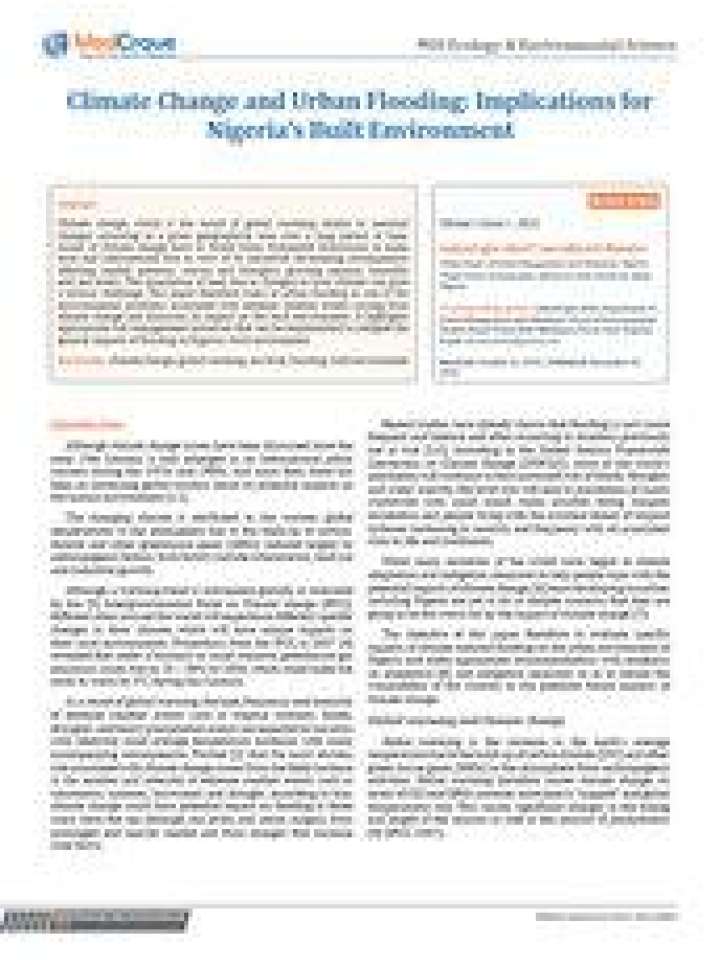Climate change and urban flooding: Implications for Nigeria's built environment
This paper looks at urban flooding as one of the environmental problems associated with extreme weather events arising from climate change and discusses its impact on the built environment. It highlights appropriate risk management initiatives that can be implemented to mitigate the general impacts of flooding in Nigeria’s built environment.
The recommendations made by the authors, regarding disaster risk reduction, are the following:
- Nigeria's disaster preparedness machinery should be overhauled and made effective to tackle emergencies arising from disaster events.
- Ongoing development projects should be assessed to ensure that they are not vulnerable to climate change.
- Climate change mitigation initiatives should be integrated into development projects and programmes.
- Houses should be developed in such a manner that would enable them to adapt to extreme weather.
- Land use regulations should be strictly enforced by all relevant authorities to prevent the construction of houses/buildings along flood plains and areas vulnerable to flooding.
- City planning is necessary to ensure that adequate spaces are maintained within residential developments to allow for easy infiltration of surface runoffs during rainfall.
- The Ministry of Environment should establish a Risk Assessment Unit which should be sufficiently empowered to undertake vulnerability assessments of the potential impacts of floods and other extreme weather events in all part of the country.
- It is also suggested that government at all level initiate a flood defence budget to tackle the menace of flooding and protect homes from its devastating effects.
MOJ Ecology & Environmental Sciences, Volume 1, Issue 1:00003, November 2016. This document is open access.
Explore further
